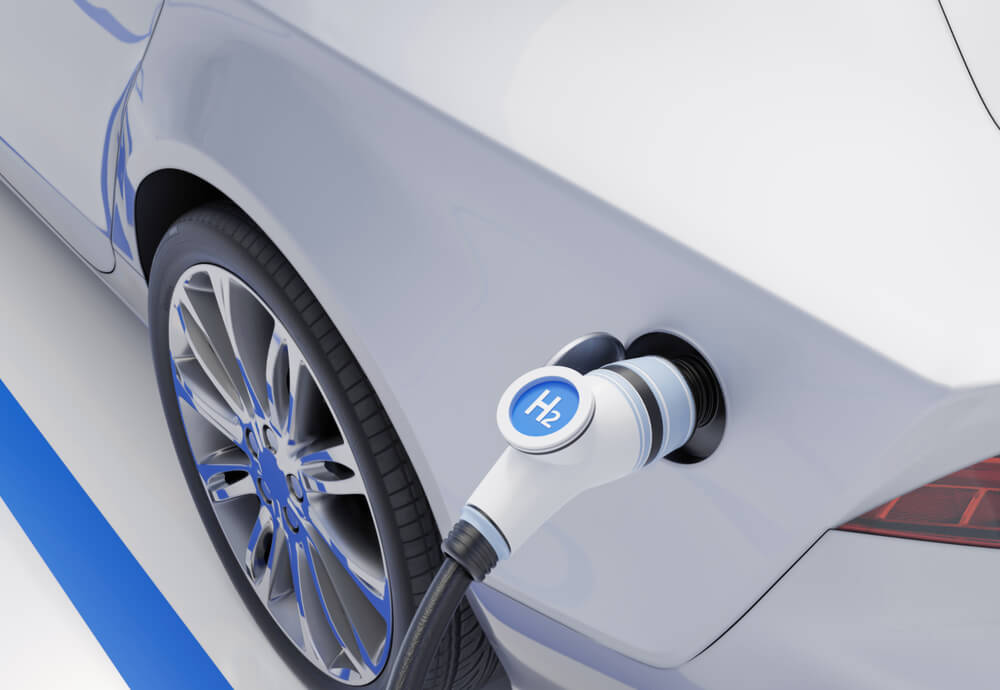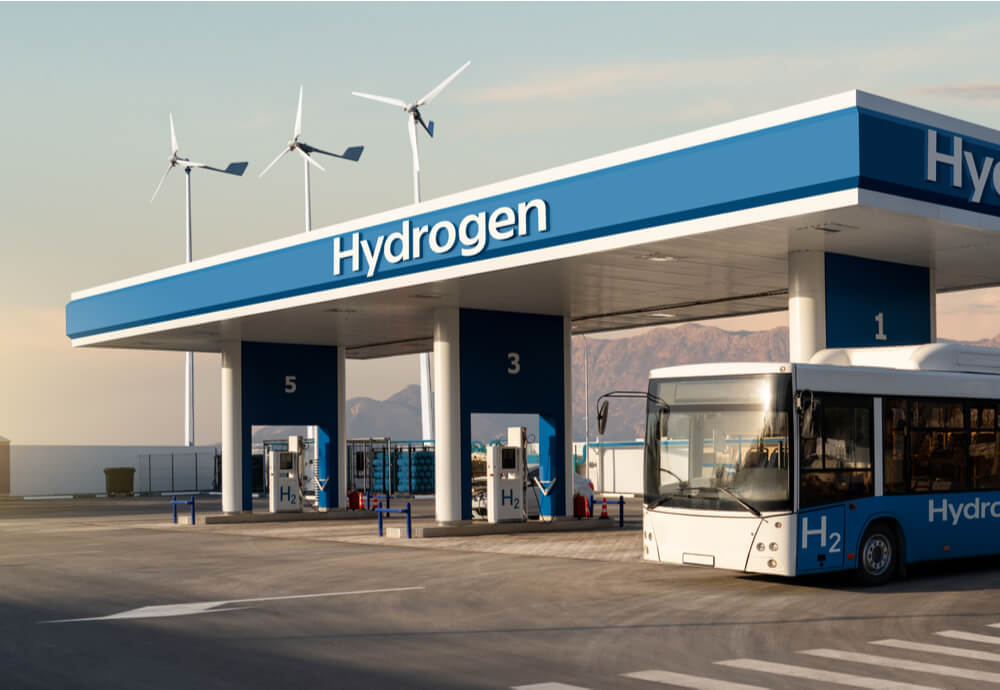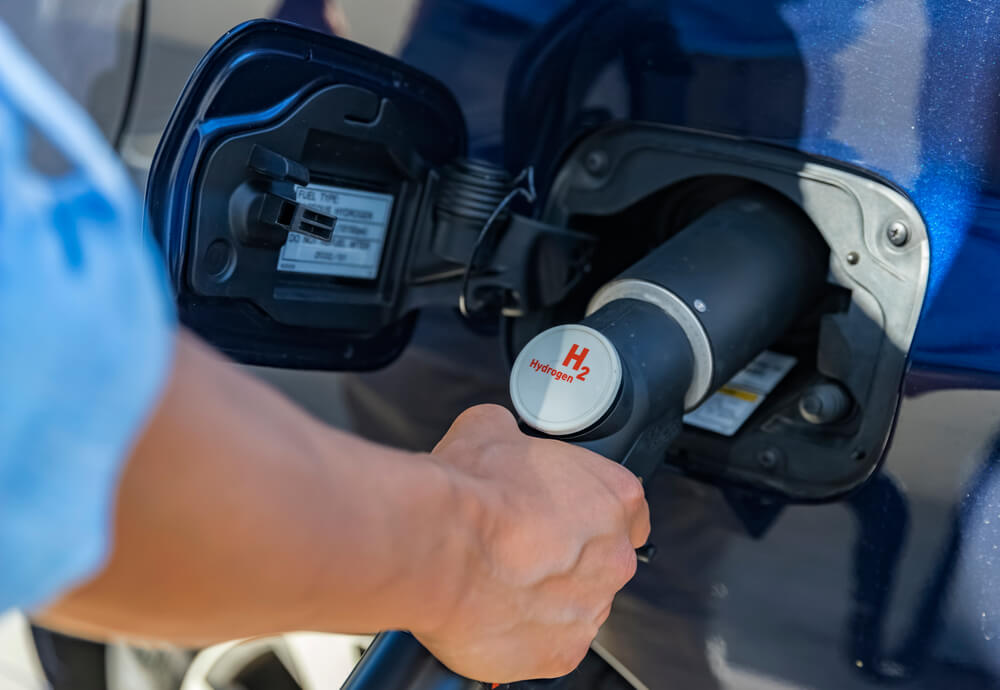
In September 2021, Hyundai revealed its plans to popularise hydrogen as a fuel source by 2040.1 Hyundai was the first manufacturer to make a hydrogen fuel cell car – the Hyundai ix35 – back in 2013.2
Making hydrogen fuel cell vehicles available, let alone popular, in Australia is set to be challenge, however.
Only two hydrogen refuelling stations are open to the Australian public at the time of writing; one in Canberra3 and the other Melbourne.4 A third location is planned for Brisbane as part of a $3.1 million pilot project.5
What is a hydrogen car, and how does it work?
In a hydrogen fuel cell car, the fuel cell generates electricity by combining the hydrogen with oxygen in a chemical reaction. The power output is the same as an electric vehicle, but the fuel cell is more like traditional petrol and diesel engines because the hydrogen is stored as a liquid.6
While hydrogen fuel cell vehicles are already available in countries worldwide with the necessary refuelling infrastructure, no hydrogen passenger car is yet commercially available to purchase. Two hydrogen fuel cell cars have been certified for sale in Australia, the Hyundai NEXO and Toyota Mirai, but neither is available to buy as of 2021.
Can hydrogen fuel cell cars rise as a new eco-friendly alternative to petrol and diesel, and a potential competitor to the electric car? Let’s take a look.

The pros and cons of hydrogen fuel cell vehicles
Electric cars (including hybrids) are gaining popularity, though they still make up only a tiny portion of new car sales. According to the Australian Bureau of Statistics (ABS), 71.7% of new cars registered from 2020 to 2021 were petrol, 26.4% were diesel, while all the rest (electric and LPG cars) were the remaining 1.8%.7
One of the key issues with electric cars is their limited range. Most electric vehicles (EVs) can travel between 400km and 500km on a single charge – although the Electric Vehicle Council notes this is more than enough to meet the weekly needs of the average Australian.8
Hydrogen fuel cell cars, on the other hand, can go further than 600km before they need to refuel. The Toyota Mirai has a 650km range,9 while the Hyundai NEXO can go a devilishly far 666km.10
Hydrogen could be the answer for Australians wanting an eco-friendlier car but are worried about their vehicle’s range, although hydrogen fuel cells are not as efficient as EVs. You would need double the amount of hydrogen energy to reach the same output as an electric car. Given that electric batteries for vehicles are very heavy, the performance works out to be very similar between the two.11
To help improve efficiencies, the latest hydrogen fuel cell cars are said to absorb the kinetic energy from braking and store it for later, and they come with ‘lower-power’ modes where the hydrogen fuel cell can idle or be turned off based on the driver’s needs.12
Another positive for the Hydrogen car is that it only takes a few minutes to fill up the fuel cell, whereas electric cars can only get a small charge in 10 minutes by using a fast-charging station. It typically takes a couple hours to completely recharge an electric car’s battery pack.13
EVs are significantly more expensive than their fossil-fuel counterparts – at least for now. However, given hydrogen cars would be starting from square one, it’s entirely plausible that these vehicles will be as expensive or more so than electric vehicles.

Electric vs hydrogen cars: which should you get?
While EVs still aren’t that common in Australia, they’re becoming more popular. In comparison, hydrogen cars are starting from ‘square one’. There are only two hydrogen refuelling stations in the country (three if the Brisbane pilot program is successful), compared to more than 3,000 public electric charging stations.14 Another benefit of EVs is that they can be charged at home, while there are currently no private at-home options for refuelling hydrogen cars.
In the future, we could have a range of different, eco-friendly alternatives to fossil fuel vehicles as electric and hydrogen cars become more popular and more affordable. This on-road fleet of the future will require a range of new charging stations, including hydrogen.
Hydrogen cars rely on heavy investment in infrastructure to encourage demand. On the other hand, electric vehicles have a rapidly growing market share, more infrastructure and have been around for almost a decade.
Although based on range, there is no doubt that hydrogen fuel cell cars can compete closely with EVs, once they’re on the road. The trick will be getting them there.
In the meantime, if you need fuel for your car now, you can check out the Simples app to find the cheapest prices near you at the touch of a button.
Sources:
1 Hyundai Motor Group Presents Its Vision to Popularize Hydrogen by 2040 at Hydrogen Wave Forum. Hyundai Motor Company. 2021.
2 Hyundai ix35 Hydrogen Fuel Cell Vehicle. Hyundai Motor UK Limited. 2013.
3 Australia’s first public hydrogen refuelling station opens in Canberra. Shane Rattenbury, Australian Capital Territory Government. 2021.
4 Melbourne’s first hydrogen refuelling station takes shape. ARENAWIRE, Australian Renewable energy Agency, Australian Government. 2020.
5 Hydrogen fuel cell car demonstration launch in Brisbane. ARENAWIRE, Australian Renewable energy Agency, Australian Government. 2021.
6 Hydrogen Vehicle Information. GreenVehicleGuide, Australian Government. 2021.
7 Motor Vehicle Census, Australia. Australian Bureau of Statistics, Australian Government. 2021.
8 Mythbusting. Electric Vehicle Council. 2021.
9 All-new Mirai. Toyota Australia. 2021.
10 NEXO: Hyundai’s hydrogen fuel-cell first. Hyundai Motor Company. 2021.
11 Hydrogen cars won’t overtake electric vehicles because they’re hampered by the laws of science. Tom Baxter, The conversation. 2020.
12 How Do Fuel Cell Electric Vehicles Work Using Hydrogen? Alternative Fuels Data Center, Office of Energy Efficiency & Renewable Energy, U.S. Department of Energy, Government of the United States of America. 2021.
13 Fast Charging vs Slow Charging: Pros and cons for the New Age of Electric Vehicles. Charles Botsford, Adam Szczepanek, EVS24 International Battery, Hybrid and Fuel Cell Electric Symposium. 2009.
14 State of Electric Vehicles. Electric Vehicle Council. 2021.








